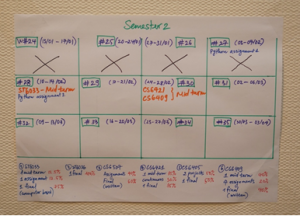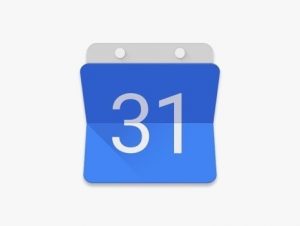Vietnamese Student Ambassador Tran Thi Hoang Yen has some really great advice for anybody returning to academic life after time working in the ‘real world’
Before doing my master’s in data science and analytics at UCC, I had spent nearly four years working in different companies and projects. It was not a long time but enough for me to get used to working life.
Hence, returning to academic life, especially in another country far away from Vietnam, was not easy. It took me about a month to get sorted, including finding accommodation, completing administration procedures, adapting to school and getting used to the living costs in a new country.
In this post I would like to focus more on the academic side and to share about some tips to handle assignments and exams.
Managing the workload
The number of assignments and exams depend on the course you study, whether it is technical, economic or social science. For my master’s, the number of assignments and exams was huge. In the first semester, I had 22 individual assignments and laboratory reports, three mid-term exams and six final exams. It was stressful but thanks to experience from my working life, I survived this tight schedule. One of the key points is time management.
And here are some tips about that:
Countdown timetable
You can make it yourself with just paper and some colour pens. It is a very simple yet extremely effective visualization tool to remind you of your progress. I prefer a paper timetable as it can be easily stuck into your desk or somewhere in your study corner that you always pay attention to.
Here is an example of my countdown timetable for this semester:

If you’re creative and good at painting, you can decorate your timetable to make it fancier. Unfortunately, I’m terrible at painting so I just made a simple countdown schedule like the one above.
The main information to include is:
1. Week number (start date and end date): This is important as in some universities the first week of the first semester is actually week #6 or #7 (not #1) as it is counted from the summer semester. So, make sure you have the right week number. Check it in the timetable system.
2. Key events: such as mid-term test or equivalent assignments
3. Assignment deadlines: to be filled in during your study progress
4. Modules: At the end of the timetable, you should list all modules that you have to complete this semester and their weighted assessment components.
All of this information should be available after the first week of the semester as in the first lecture, the lecturers will give you an introduction about the module. If you’re not sure about the weighted assessment, do not hesitate to ask your lecturers.
Make sure you cross off the week after it is over. That’s why I call it a ‘countdown timetable. 😉
Personally, I found this manual countdown schedule very useful for me as each week I put cross a cell in the timetable, it’s a time to revise everything whether I am on track or I am left behind. Besides, based on the weighted assessment information, I could be able to allocate time on important events.

Google Calendar
The first tip was about a manual tool, which might be out-of-date for some of you. So if you want to try a digital tool (which you definitely should), I highly recommend the Google Calendar app.
Every student has a Google account (as your university creates student Gmail accounts), so you can download and use Google Calendar easily. What I like about this app is the simple user interface which is so straightforward to help you create event/reminder/task.
There is a bunch of tutorial videos on YouTube about tips and tricks to use Google Calendar app. So, check it out.

Start assignments NOW!
This is actually a piece of advice that I received from a student during the first week at university. I followed it and it worked like a charm. The number of assignments is big so you should start planning and brainstorming for your assignment(s) once the lecturer assigns it to you and develop it gradually day by day. This means you can start two assignments on the same day and gradually complete them.
By doing it this way, you will not forget about tasks that you have to complete. In fact, having many assignments may lead to the situation that you forget to do the assignment until seeing the notification about the due date.
Also, you should take into account the time needed to complete an individual assignment for each subject. This is so you can estimate time for a similar type of upcoming assignments in that module and allocate your time more accurately.
I hope you find the above tips useful in dealing with your busy academic schedule. If you are already doing tips like these, that’s great! You can always try to make it more effective and share your advice in the comment sections.
Thanks all for reading.

